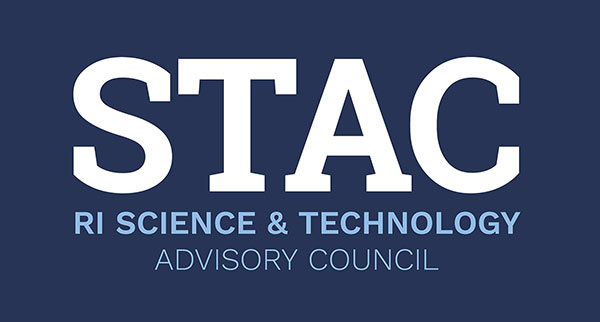2020 STAC Collaborative Research Grant Awardees
Five interdisciplinary research teams were selected to receive funding, totaling $381,014, from the Science & Technology Advisory Council (STAC) this year. Research projects directly address the RI NSF EPSCoR proposed program themes of:
- Assessing Resilience: What are the key data, methods, and/or techniques needed to assess the current health of Narragansett Bay and its resilience to anthropogenic stressors in real-time
- Understanding complexity: How can our understanding and data collections of the physical, biogeochemical and ecological processes that contribute to coastal ecosystem complexity be used to improve and evaluate Narragansett Bay ecosystem models?
- New Innovations: What new innovations in sensors are needed to improve the collection of data on the physical, biogeochemical, and ecological processes as well as anthropogenic stressors (e.g., pollution) that are impacting Narragansett Bay?
- Increasing Engagement: How can novel approaches to the visualization of complex information, coastal species and environmental change, fostered through the collaboration of artists, designers, engineers and scientists, promote broader engagement in and understanding of scientific research, data, and findings?
- Improving Sustainability: How does the coastal environment affect humans and how can human behavior and responses be modified to improve coastal ecological and economic sustainability?
- Big Data: What new tools or techniques are needed to capture, analyze, and disseminate large data sets that engage and inform academic, industry, government and community stakeholders?
Recipients
Establishing the Spatial and Temporal Distribution of Microplastics in Narragansett Bay ($79,891)
Plastic pollution is of growing concern for coastal communities around the world, as it threatens the structure, function, and health of marine ecosystems and humans alike. In this collaborative study, the team proposes to couple hydrodynamic models (computer simulations of water movement), the use of Lagrangian Drifters (trackable floats that move with the currents), and spatial and time-series sampling at strategic locations within Narragansett Bay to develop a baseline understanding of the distribution of plastic pollution.
- Andrew J. Davies Ph.D, Department of Biological Sciences, University of Rhode Island
- Scott Rutherford Ph.D, Department of Environmental Sciences, Roger Williams University
- Mike Jarbeau, Save The Bay
- Coleen Suckling Ph.D, Fisheries, Animal and Veterinary Sciences, University of Rhode Island
- Kelton McMahon Ph.D, Graduate School of Oceanography, University of Rhode Island
- Christopher Kincaid Ph.D, Graduate School of Oceanography, University of Rhode Island
- Vinka Craver Ph.D, University of Rhode Island
Novel Denitrification Sensor for Narragansett Bay Coastal Ecosystems: Testing Response to Shifting Nutrient Loans ($79,982)
This collaborative research will expand understanding human impacts on nutrient dynamics in Narragansett Bay by providing a new tool that can dramatically increase availability of data on denitrification, a key functional metric of nutrient remediation in costal ecosystems. The research offers promise for demonstrating a novel, simple, and inexpensive field-deployable tool to measure denitrification with which resource managers may better assess functional resilience of coastal ecosystems.
- Serena Moseman-Valterra Ph.D, Department of Biological Sciences, University of Rhode Island
- Mark Stolt Ph.D, Department of Natural Resources Sciences, University of Rhode Island
- Jose Amador Ph.D, Department of Natural Resources Sciences, University of Rhode Island
- Brett Pollock Ph.D, Department of Biology, Providence College
A Species-Specific Approach to Enhance Ecosystem Models for Planktivorous Fishes ($80,000)
This project will supply new information that enables predictive models to better describe how coastal fish communities will be influenced by climate change. Predicative models are a widely used tool to determine how marine communities will respond to changing temperatures which can influence decision making processes. However, these models are often parameterized using historical and literature data. The team will assess the responses of three key model fish species used within NSF EPSCoR’s RI C-AIM program to near future climate change by making stronger links with physiology to explain any alterations in responses commonly incorporated in modeling efforts (e.g. food consumption, growth, survival).
- Coleen Suckling Ph.D, University of Rhode Island
- Terry Bradley Ph.D, University of Rhode Island
- Andrew Davies Ph.D, University of Rhode Island
- Austin Humphries Ph.D, University of Rhode Island
- Anabela Maia Ph.D, Rhode Island College
- Conor McManus Ph.D, RI Department of Environmental Management
Large Scale Projection Mapping as a Collaborative Platform for Communication and Discourse Using Oceanographic Data and Physical Modeling of Narragansett Bay ($61,141)
This project provides for the first iteration of a three-dimensional mobile visualization platform for viewing animations of ocean model simulations using data obtained through C-AIM projects. This project provides for the first essential step in transforming model data into 3D meshes that can be visually explored in ways that facilitate refinement of models and scientific understanding of complex system dynamics for both professional and lay audiences. Support for this collaboration between RISD and Brown researchers will facilitate the type of innovation only possible when experts in diverse fields collaborate, strengthen Rhode Island’s position as a leader in data visualization for imaging.
- Jennifer Bissonnette, Ph.D, Biological Programs Director, Rhode Island School of Design
- Baylor Fox-Kemper, Ph.D, Associate Professor of Earth, Environmental and Planetary Science, Brown University
- Georgia Rhodes, Visualization and Imaging Assistant, Rhode Island School of Design
- Stewart Copeland, Adjunct Lecturer in New Media, University of Illinois
- Aakash Sane, Ph.D. Candidate, Brown University
Pathways to the Modeling of Microbial Ecology in the Narragansett Bay Through Deep Omics Sequencing ($80,000)
Microbial populations play fundamental roles in the biogeochemical cycling of marine environments by mediating the transfer of carbon and nutrients to higher trophic levels. This project team aims at bridging the gap between our understanding of population dynamics and the underlying mechanisms in nutrient cycling, species interactions, and stress responses, with a focus on the microbial community in the Bay.
- Ying Zhang Ph.D, Department of Cell and Molecular Biology, University of Rhode Island
- Peter Belenky Ph.D, Molecular Microbiology and Immunology, Brown University
